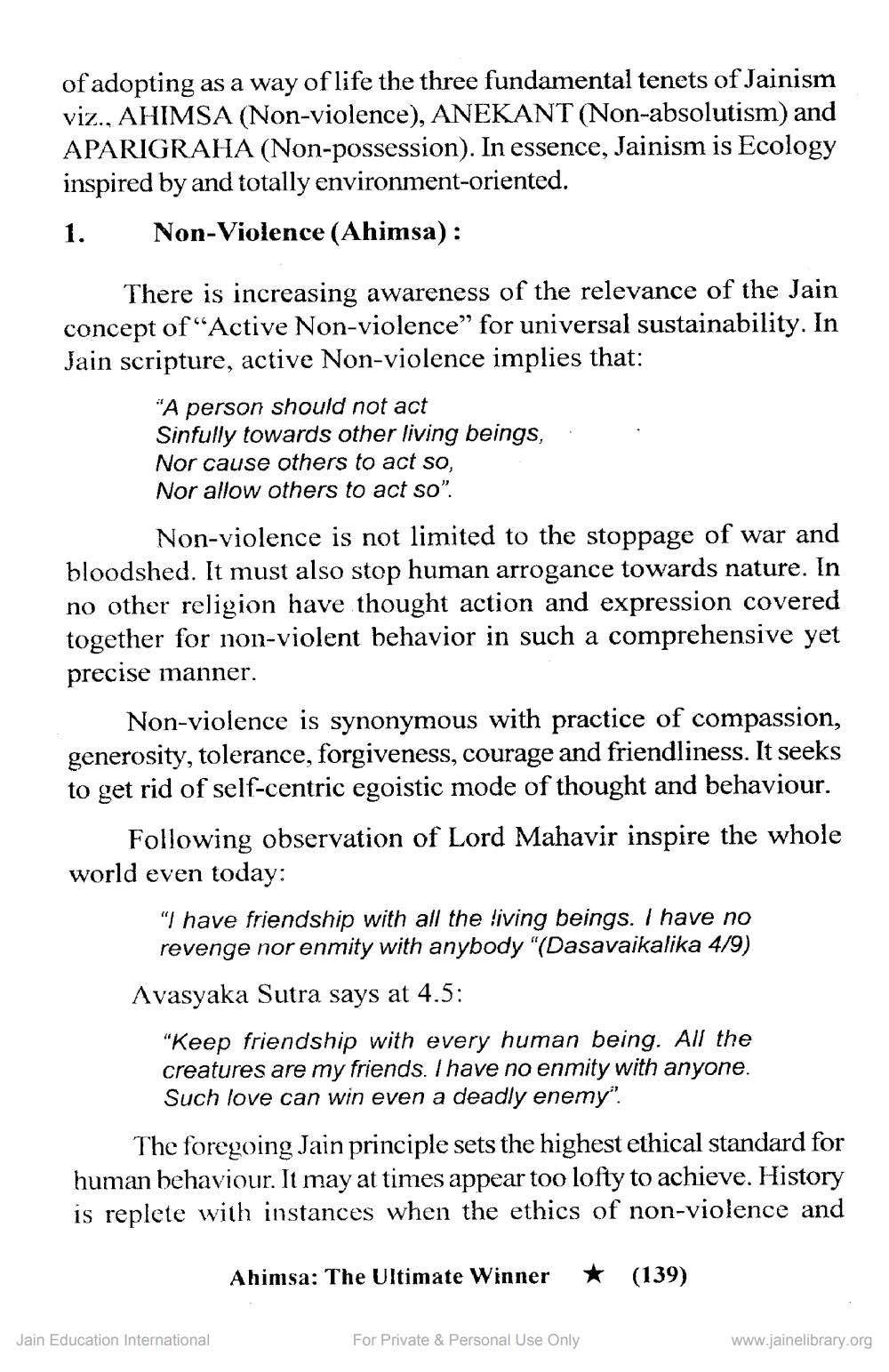________________
of adopting as a way of life the three fundamental tenets of Jainism viz.., AHIMSA (Non-violence), ANEKANT (Non-absolutism) and APARIGRAHA (Non-possession). In essence, Jainism is Ecology inspired by and totally environment-oriented. 1. Non-Violence (Ahimsa):
There is increasing awareness of the relevance of the Jain concept of “Active Non-violence” for universal sustainability. In Jain scripture, active Non-violence implies that:
“A person should not act Sinfully towards other living beings,. . Nor cause others to act so, Nor allow others to act so".
Non-violence is not limited to the stoppage of war and bloodshed. It must also stop human arrogance towards nature. In no other religion have thought action and expression covered together for non-violent behavior in such a comprehensive yet precise manner.
Non-violence is synonymous with practice of compassion, generosity, tolerance, forgiveness, courage and friendliness. It seeks to get rid of self-centric egoistic mode of thought and behaviour.
Following observation of Lord Mahavir inspire the whole world even today:
"I have friendship with all the living beings. I have no
revenge nor enmity with anybody "(Dasavaikalika 4/9) Avasyaka Sutra says at 4.5:
"Keep friendship with every human being. All the creatures are my friends. I have no enmity with anyone. Such love can win even a deadly enemy".
The foregoing Jain principle sets the highest ethical standard for human behaviour. It may at times appear too lofty to achieve. History is replete with instances when the ethics of non-violence and
Ahimsa: The Ultimate Winner
*
(139)
Jain Education International
For Private & Personal Use Only
www.jainelibrary.org




